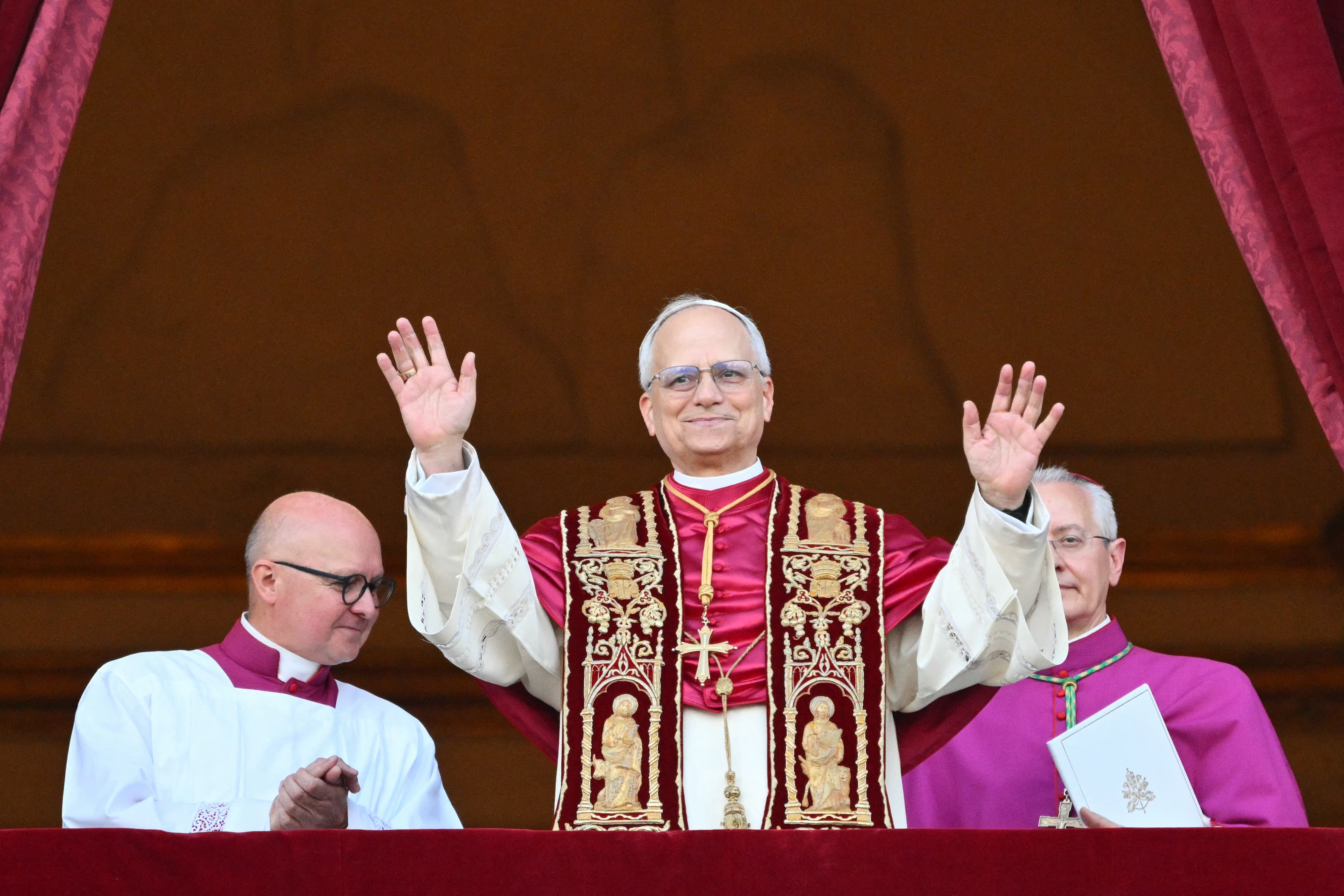The American Pope in Peru
Pope Leo XIV spent much of his life ministering to Catholics in Peru.

The American press has made much of the fact that the new head of the Catholic Church, Pope Leo XIV (born Robert Prevost), is the first American pope—a major development in the history of the Church, in which Rome has often been somewhat distant from the traditionally Protestant United States (even as the influence of American Catholicism has steadily grown). Prevost was born and raised in Chicago, and many Americans have found no small amount of humor in the idea of a Pope Bob from Chicago who speaks English and likely has opinions on the proper toppings to serve on a hot dog and the best kind of pizza. But another country also lays a claim to the papacy: Peru, where Prevost lived as a priest and then a bishop for decades.
On Saturday, Peruvians in the northern city of Chiclayo, where Prevost served as a bishop between 2014 and 2023, held a massive celebration for the ascension of the papa Chiclayano—the pope from Chiclayo. The new pope acknowledged his connection to the city in his first speech in the Vatican after being elevated to the papacy.
Prevost has been a citizen of Peru since 2014, but first arrived in the country in 1985, when he served as a parish priest. After briefly returning to the United States, he arrived in Peru again in 1988, this time for good. He spent over a decade at the Augustinian seminary in Trujillo, teaching canon law and assisting with the education and formation of future Catholic priests. He also engaged in pastoral work, visiting impoverished and rural communities in the north of Peru, at times travelling by horse to reach small, isolated communities unreachable by motor vehicle.
This was potentially dangerous labor at the time—the country was embroiled in a brutal conflict between Marxist revolutionaries fighting under the banner of the Shining Path and government forces under Peruvian president-dictator Alberto Fujimori. The civil war fell the hardest on the poor rural communities of Peru, who suffered not only the weight of communist attacks but were also targeted by the Peruvian military, which suspected many peasants of communist sympathies and could be just as brutal as the guerillas.
Prevost’s experiences with pastoral care led him to be sharply critical of Fujimori and the abuses the military perpetrated during the civil war under his leadership. When in 2017 President Pedro Pablo Kuczynski pardoned Fujimori, who was serving a prison sentence for human rights violations committed during his presidency, Prevost (then serving as Bishop of Chiclayo) denounced the decision. Fujimori had not shown any real contrition for his crimes, he argued. “Perhaps it would be best for him to personally ask forgiveness for some of the great injustices that were committed and for which he was condemned,” Prevost said.
As bishop, Prevost received the full experience of Latin American political instability, occupying the office through the functional collapse of the Peruvian government and the successive overthrows of Peruvian presidents Kuczynski in 2018, Martín Vizcarra and Manuel Merino in 2020, and Pedro Castillo in 2022. Prevost and other members of the Peruvian bishops’ conference even met with Castillo in an attempt to mediate the ongoing political crisis shortly before he attempted a bizarre autogolpe to avoid impeachment—a maneuver that collapsed immediately without support from Congress, the military, or his own government.
Subscribe Today
Get daily emails in your inbox
Prevost’s work as a bishop eventually caught the eye of then-Pope Francis, who appointed him to the Dicastery of Bishops in 2023, a powerful position that assists in the selection of new bishops throughout the world. He was created a cardinal shortly afterwards.
It is not unlikely that Prevost’s long service in Peru contributed, alongside his mild manners and powerful connections at the Dicastery of Bishops, to his relatively unexpected election to the papacy. An American pope is an unprecedented phenomenon, and the American Catholic church has lately often been culturally at odds with Rome and the Catholic church abroad. But Prevost has spent much of his life abroad, lending him additional cultural perspective, while his pastoral work in Latin America has a certain consonance with the focus of his predecessor Pope Francis.
It remains to be seen how Leo will shape the papacy and the Catholic church, but his long ministry to the people of Peru is likely to prove no less influential than his early life and education in the United States. This dual identity may well help him bridge internal divisions in the Church during a time of change and global instability.